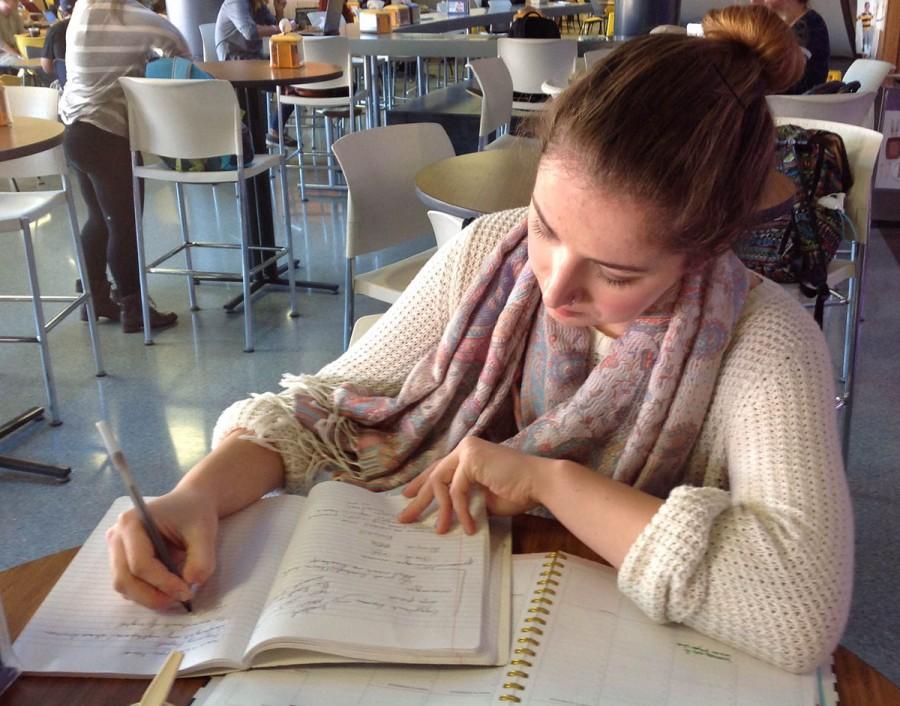Multi-tasking cheats millennials’ comprehension of material
Finding the tricky balance in university work
More stories from Lara Bockenstedt
Photo by SUBMITTED
Lara Bockenstedt studying in the Davies Student Center.
Millennials are expected to have balanced, multi-tasking lives in spades.
Many of us were trained to be “college-prepared” in high school. We were involved in numerous activities, difficult classes and obligations. I remember being relentlessly encouraged to orient my life so I could make a dynamic impression on the friends and admissions counselors I admired.
While I appreciate the importance of exposing oneself to different subjects (otherwise I wouldn’t be at a liberal arts college), the educational aspect that requires dabbling in a multitude of fields holds a tenuous space in college.
Millennials, like myself, were raised with the expectation of being able to handle as many obligations as possible. Through this, I learned the art of getting by. “Balance” was a word reserved for when I managed to make it appear as if I knew what I was doing.
Once the smoke and mirrors are cut, it is evident that studying by way of skimming is a slippery facade; one that others in academia can see through quickly.
Professors can tell when students haven’t thought critically while reading. The lack of in-depth understanding in some circumstances becomes terrifyingly evident when it comes time to work on independent projects.
Throughout my first two years at UW-Eau Claire, I was convinced the activities I previously adored would be necessary to my schedule. Eagerly, I sought out opportunities in music and resident hall life in addition to a part-time job.
While many of these aspects brought joy, I found myself doing the bare minimum for classes related to my major.
We’ve all had the experience of sitting in the Davies Center with the sinking realization that we have to get three projects, two essays and a test accomplished in the course of one week. More often than not though, that sort of work is what we’re equipped for. It isn’t the “busy” that requires a tricky transition.
I came to college ill-equipped for assignments such as reading one article for homework. When this sort of work was assigned, I blew off an opportunity for enrichment, a chance to read the work closely and attentively. Instead, it became a space to fill in my schedule after briefly reading through the article.
In a generation that venerates multitasking, being topical in study habits is a danger. It neglects balancing human doing with being.
The U.S. Chamber of Commerce Foundation said millennials are looking to be the most educated generation in history. They also state two-thirds of millennial students predict “they will perform in the top 20 percent of the population in their adult jobs.”
The fact that a majority of millennials see themselves as well-performing experts may be due to the confidence they gain from being able to work in a broad variety of capacities. In order to set oneself apart, it’s important to be dynamic and also have an in-depth understanding of a chosen field.
I’m beginning to find balance in college involves simplifying. It necessitates putting effort into the few classes and activities we see in our future rather than “making it work” with a crazy number of activities.
As millennials with unique strengths and input to carry into our professions, we have a duty of sorts to our current and future selves to invest more in a lower number of obligations.
I set a goal because of this to be more meticulous and selective in my studies. I’ve decided to choose what I’m good at and put in the effort to become great at it.











